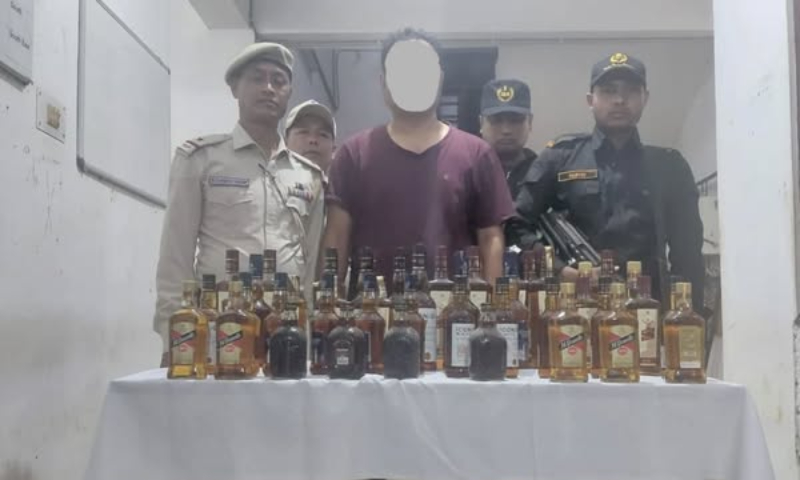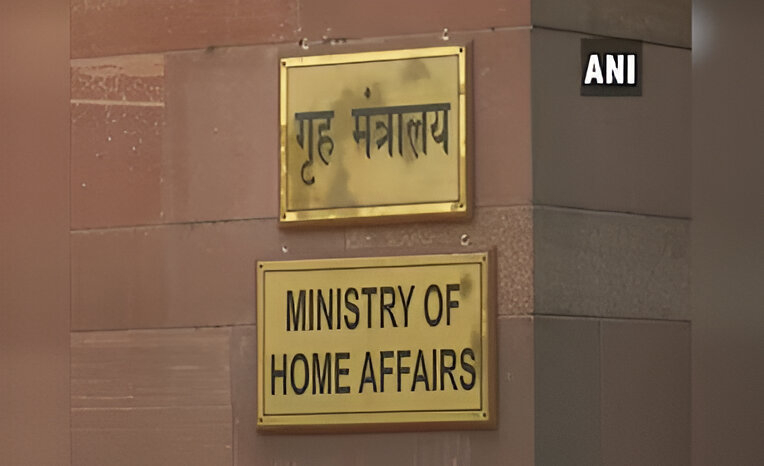Manipur Cracks Down on Illegal Liquor Sales in Imphal East
Short Summary
In a significant operation, authorities in Manipur’s Imphal East district have seized a substantial quantity of illegal liquor, including 26 half bottles of Indian Made Foreign Liquor (IMFL) and 444 bottles of distilled illicit country (DIC) liquor, locally known as ‘Yu’. The joint effort involved the Manipur police, state excise officials, and a women’s vigilante group. An alleged wine seller was arrested, and the confiscated items were handed over to the state excise office for further legal action.
Unveiling the Shadows: The Battle Against Illegal Liquor in Manipur
Introduction
Manipur, a state with a complex relationship with alcohol, has been grappling with the challenges of illegal liquor trade for decades. Despite various prohibitions and regulations, the clandestine sale and consumption of alcohol continue to pose significant social and health risks. The recent crackdown in Imphal East is a testament to the ongoing efforts to curb this menace.
The Operation in Imphal East
The coordinated operation in Imphal East was a result of meticulous planning and collaboration between the Manipur police, state excise officials, and a proactive women’s vigilante group. Over 36 hours, multiple raids were conducted, leading to the seizure of:
- 26 half bottles of IMFL, including brands like White Magic, McDonald’s, Old Monk, Royal Stag, Tuborg, and Kingfisher.
- 444 bottles of DIC liquor, commonly referred to as ‘Yu’.
- Other intoxicating items.
An alleged wine seller was apprehended, and all seized items were transferred to the state excise office for legal proceedings.
Understanding the Context
To fully grasp the significance of this operation, it’s essential to understand the broader context of alcohol regulation in Manipur.
Historical Perspective on Alcohol Prohibition in Manipur
Manipur’s journey with alcohol prohibition has been tumultuous. In 1991, the state government imposed a total ban on alcohol. However, over the years, the prohibition was lifted in certain districts, leading to a patchwork of regulations. This inconsistent enforcement has inadvertently fostered a thriving black market for alcohol.
The Rise of ‘Yu’
‘Yu’, a locally distilled liquor, has become synonymous with illicit alcohol in Manipur. Its production and sale are deeply rooted in local traditions, making it challenging to eradicate. The affordability and accessibility of ‘Yu’ have contributed to its widespread consumption, despite the associated health risks.
The Role of Vigilante Groups
Women’s vigilante groups have emerged as pivotal players in the fight against illegal liquor. These groups, often comprising mothers and community leaders, actively patrol neighborhoods, report illicit activities, and collaborate with authorities. Their involvement underscores the community’s commitment to addressing the issue at its grassroots.
Health Implications of Illicit Liquor
The consumption of unregulated alcohol like ‘Yu’ poses severe health risks, including:
- Alcohol poisoning due to methanol contamination.
- Long-term liver damage.
- Increased incidence of alcohol-related accidents and violence.
These health concerns place an additional burden on the state’s healthcare system and underscore the urgency of addressing the illegal liquor trade.
Economic Impact
The illegal liquor market undermines the state’s economy by:
- Eroding potential tax revenues from regulated alcohol sales.
- Diverting funds into untraceable channels.
- Disrupting legitimate businesses that comply with regulations.
Legal Framework and Enforcement Challenges
While laws exist to curb the production and sale of illegal liquor, enforcement remains a challenge due to:
- Limited resources and manpower.
- Corruption and collusion in some instances.
- The clandestine nature of the operations.
Community Engagement and Awareness
Educating the public about the dangers of illicit liquor is crucial. Community programs, school initiatives, and public service announcements can play a significant role in changing perceptions and behaviors.
Alternative Livelihoods
For many involved in the production of ‘Yu’, it’s a primary source of income. Providing alternative livelihood opportunities can deter individuals from engaging in illegal activities.
Conclusion
The recent crackdown in Imphal East is a commendable step towards addressing the pervasive issue of illegal liquor in Manipur. However, sustained efforts, community involvement, and comprehensive strategies are essential to bring about lasting change.
FAQs
- What is ‘Yu’?
- ‘Yu’ is a locally distilled liquor in Manipur, often produced illegally and associated with various health risks.
- Why is alcohol prohibition challenging in Manipur?
- The state’s partial prohibition, cultural acceptance of local brews, and economic dependencies make enforcement complex.
- How do vigilante groups contribute to combating illegal liquor?
- They actively monitor communities, report illicit activities, and collaborate with authorities to enforce regulations.
- What are the health risks of consuming illicit liquor?
- Risks include alcohol poisoning, liver damage, and increased chances of accidents and violence.
- What measures can be taken to address the issue?
- Comprehensive strategies involving law enforcement, community education, alternative livelihoods, and consistent regulations are essential.


